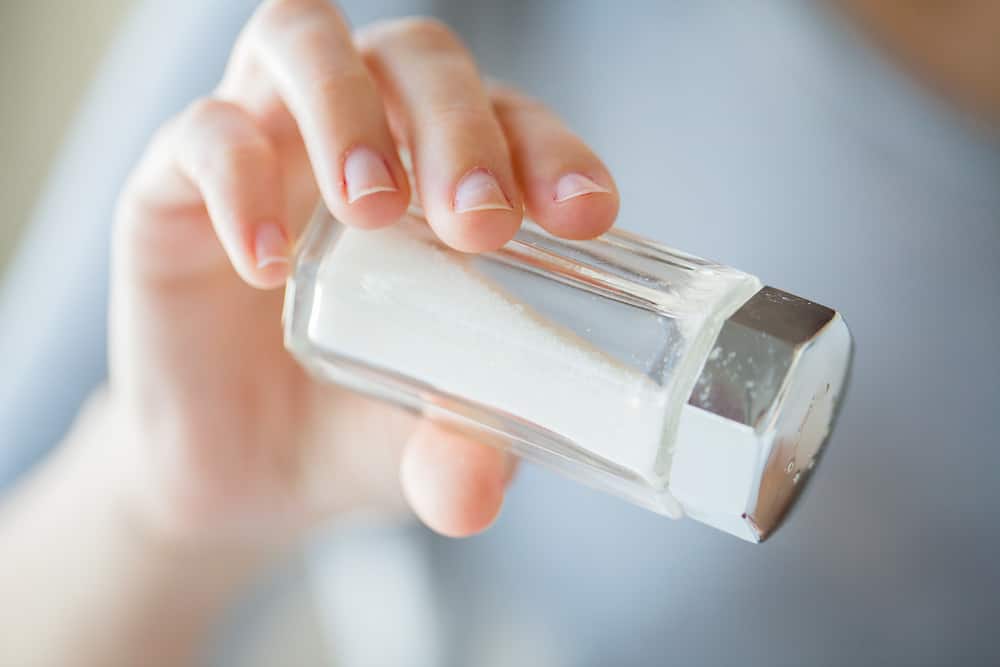Contents:
- Medical Video: Why is too much salt bad for you?
- What is the limit of salt intake in a day?
- Why do many people like salty food?
- Danger of salty food if you eat too much
- The impact of consuming low salt foods on the body
- How do you balance salt intake that is too high?
Medical Video: Why is too much salt bad for you?
One ingredient that makes food more enjoyable is salt, so it's not surprising that many people like salty foods for consumption. Salt is one source of sodium / sodium needed by the body to maintain its metabolism.
Even so, you are not recommended to consume salt excessively.Too much sodium / sodium can cause your body to hold more fluid than you need. This causes an increase blood pressure, which then increases the risk of heart disease, stroke, kidney damage, and other health problems.
What is the limit of salt intake in a day?
The 2013 Basic Health Research Data (RISKESDAS) shows that as many as 26.2 percent of Indonesia's population consumes excess salt. This number increased from 2009, which was 24.5 percent. In fact, the Minister of Health has provided a recommended limit of salt consumption per day which is as much as 2000 mg of sodium / sodium or 5 g of salt (one teaspoon).
Unfortunately, excessive salt consumption is difficult to avoid, given that sodium or sodium is often found in fast food and processed foods, such as fries, fried chicken, burgers, pizza, and so on. In fact, according to American Heart Association, about 75 percent of sodium / sodium you consume is not from salt, but from processed and fast food.
Why do many people like salty food?
A 2011 study in Australia has found that the brain responds to sodium / sodium that you consume the same as when the brain responds to nicotine. Therefore, it is not surprising that many people are "addicted" to salty or savory foods that are high in sodium.
Danger of salty food if you eat too much
When the body has excess salt, the kidneys have difficulty maintaining excess salt in the bloodstream. The salt will accumulate in the body, making the amount of fluid surrounding the cell and blood volume increase. As a result, blood must work extra for the heart and put more pressure on the blood vessels. This is what causes heart blood pressure, which can increase the risk of heart attack, heart failure, and stroke.
Therefore, one way to prevent excessive salt consumption is with a low salt diet.
The impact of consuming low salt foods on the body
Several studies have proven that consumption of low-salt foods has a good effect on body health. In a 2003 report that collected results from various research trials around the world, it was found that reducing sodium 1,000 mg daily can reduce systolic blood pressure by an average of 4 mmHg and diastolic blood pressure by 2.5 mmHg in patients with hypertension.
A study published in 2007 at British Medical Journal also found that reducing sodium intake can reduce cardiovascular disease by 25% to 30%
How do you balance salt intake that is too high?
Even though they have consumed excess salt, there are still people who do not have high blood pressure. This shows that there are other factors that cause high blood pressure, namely the lack of potassium / potassium intake in the body.
Sodium and potassium / potassium have the opposite effect on heart health, because high salt intake can increase blood pressure, which can cause heart disease. However, high potassium / potassium intake can actually help relax blood vessels and release sodium so that it can reduce blood pressure in the body.
As a result, lack of potassium / potassium can cause cells to eat sodium / sodium in the body, which can increase the body's blood pressure. In fact, in one study showed that consumption of normal amounts of salt, but by adding a portion of fruits and vegetables containing potassium / potassium, can help reduce high blood pressure significantly.
Other abundant sources of potassium / potassium are bananas, raisins, spinach, milk, potatoes baked with skin, and so on.












